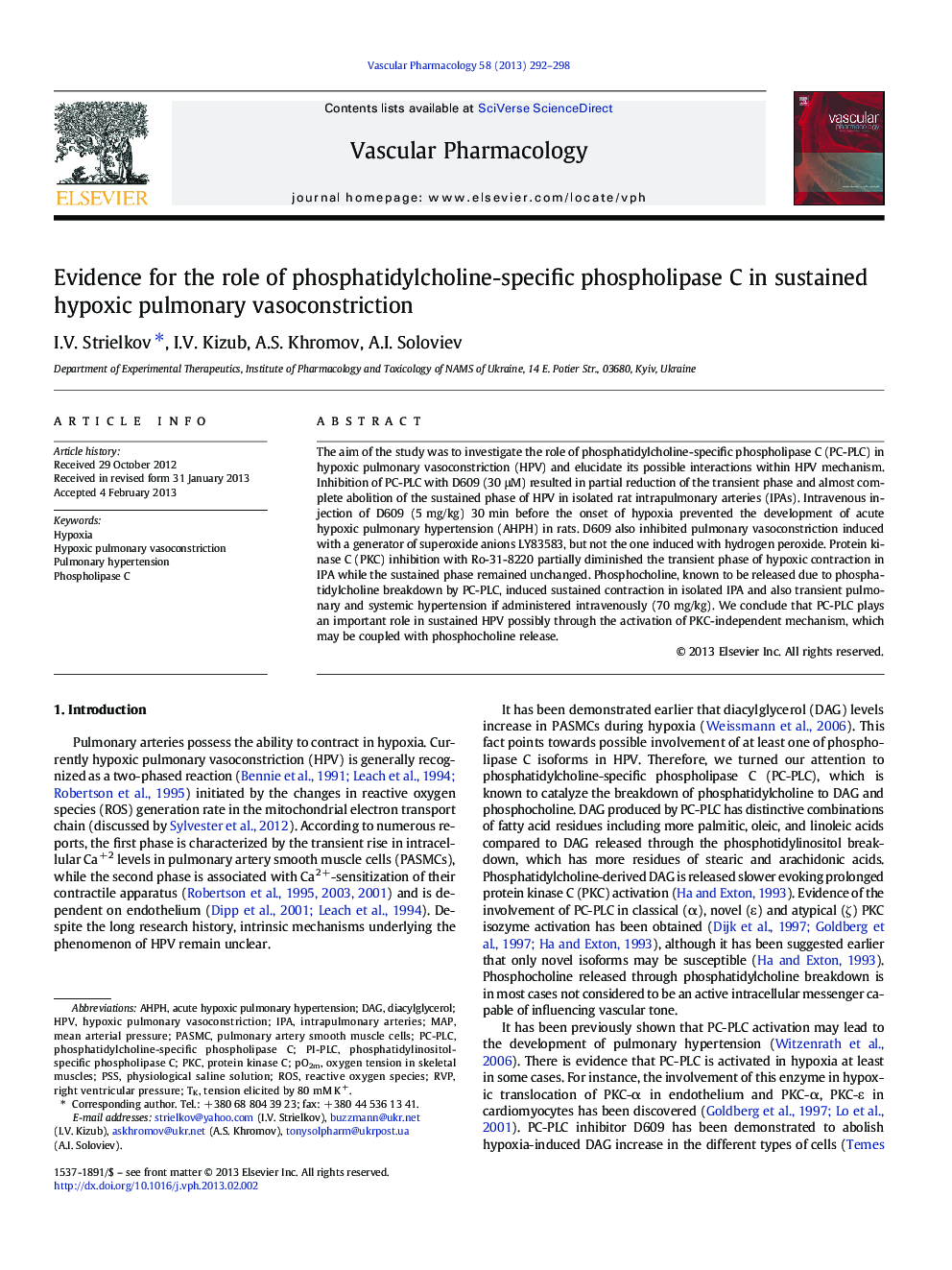| Article ID | Journal | Published Year | Pages | File Type |
|---|---|---|---|---|
| 2574282 | Vascular Pharmacology | 2013 | 7 Pages |
The aim of the study was to investigate the role of phosphatidylcholine-specific phospholipase C (PC-PLC) in hypoxic pulmonary vasoconstriction (HPV) and elucidate its possible interactions within HPV mechanism. Inhibition of PC-PLC with D609 (30 μM) resulted in partial reduction of the transient phase and almost complete abolition of the sustained phase of HPV in isolated rat intrapulmonary arteries (IPAs). Intravenous injection of D609 (5 mg/kg) 30 min before the onset of hypoxia prevented the development of acute hypoxic pulmonary hypertension (AHPH) in rats. D609 also inhibited pulmonary vasoconstriction induced with a generator of superoxide anions LY83583, but not the one induced with hydrogen peroxide. Protein kinase C (PKC) inhibition with Ro-31-8220 partially diminished the transient phase of hypoxic contraction in IPA while the sustained phase remained unchanged. Phosphocholine, known to be released due to phosphatidylcholine breakdown by PC-PLC, induced sustained contraction in isolated IPA and also transient pulmonary and systemic hypertension if administered intravenously (70 mg/kg). We conclude that PC-PLC plays an important role in sustained HPV possibly through the activation of PKC-independent mechanism, which may be coupled with phosphocholine release.
Graphical abstractFigure optionsDownload full-size imageDownload high-quality image (191 K)Download as PowerPoint slide
